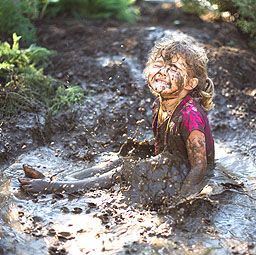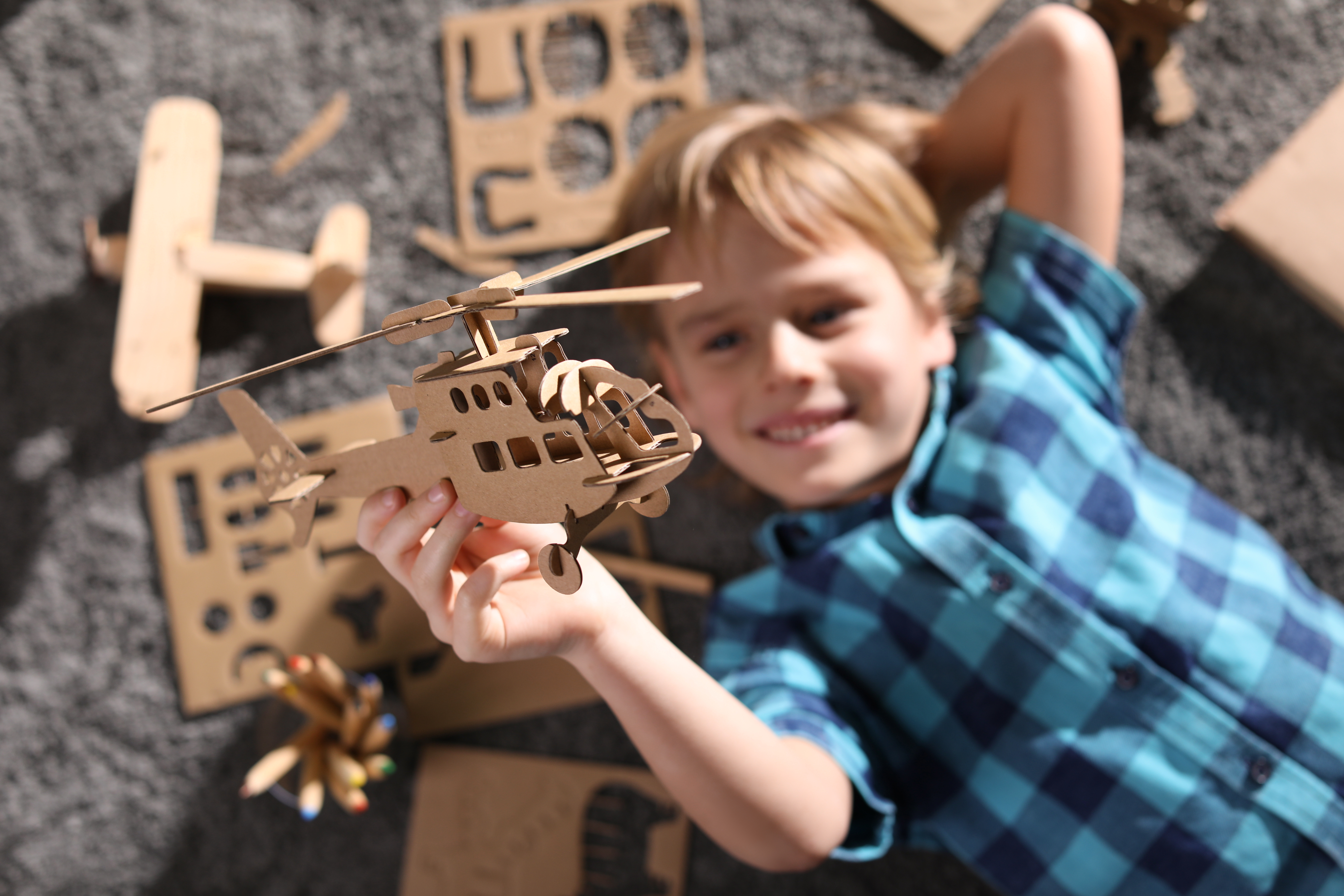WELCOME TO THE
PARENTING MENTOR BLOG
How to Handle Holiday Stress and Enjoy the Season With Your Kids

The winter season is always filled with fun, with cheer, and often with a side of holiday stress.The 10-hour car trip with toddlers, the shuffling from one house to the other, the staying with your in-laws, the cooking for 30 people! Any tradition that doesn’t, as Marie Kondo would say, “spark joy” can easily be set aside this year. That’s a pretty incredible opportunity!
As adults, we can reframe our thinking to feel more excited--and guess what: so can your kids. Too often parents worry their kids will be devastated by the changes - but that’s before they.talk through all of the fun things this holiday season can bring. I can think of a few key ages where if I told my kids they didn’t have to wear their fancy outfits and be on their best behavior for an entire holiday dinner, they would’ve been pumped!
So first, don’t assume your kids are going to be upset. Tell them the plans for Thanksgiving (and Hanukkah and Christmas and New Years as the time approaches). If they’re not disappointed, great. If they are, validate it, but know it’s not your job to fix it. Let them have their feelings (and you can have yours, too), and still make the best of it.
With all this in mind, here are some things you can do to eliminate stress and enjoy this holiday season:
Manage expectations
People tend to freak out a bit more if something doesn’t go according to plan this time of year, because the holidays are supposed to be “perfect” and now they’re “ruined”. Tell your kids (and yourself!) that this year will be different, and there will be fun opportunities and new traditions to start.
Don’t pick little fights
Don’t stress about perfection or “how things always are,” and instead, aim to make this year special by making it different. Maybe you have a pajama day and stay in your PJs all day long. Maybe there’s some tradition one of your children would love to try. Engage them to help create the plans.
Relax about Screen time
Another rule you may want to put on hold is screen time restrictions. Gather around as a family and have a marathon of holiday movie classics throughout the season. Or, let the kids watch football game after football game--whatever your family is into.
Make Zoom Extra Special
Finally, make Zoom more fun by planning a little something special. Instead of just logging on, plan a shared activity across your family. Maybe everyone will cook latkes together and take turns spinning their dreidel; or you could have a family Caroling party complete with cocktails and mocktails.
Above all, I encourage you to celebrate without stress--and with safety in mind. Don’t let anyone else guilt you into a celebration you don’t feel is right for your family. Have fun creating your own day, and find ways to connect with each other, as well as your family near and far. Happy Holidays!
I Survived Raising a Tween Girl and You Can Too
People often groan out the phrase "tween girls" the same scary way they utter "the terrible twos," as if it's an age and a stage parents should be prepared to dread. To me, the most important phrase in that first sentence is "be prepared."
Tween girls and strong-willed two-year-olds both have an important job to do. Psychologists call it individuating, which I think of as a fancy word for reminding everyone that my mother and I are two different people. Unfortunately, the person who receives most of those reminders is the mother herself. Still, we can stay sane and happy through this necessary phase by being prepared with a few tactical strategies.
Wondering how to survive your tween's desire to rebel, which may include the occasional--or not, so occasional--pre-teen temper tantrum?
Here you go:
This is one of my all-time favorite pieces of advice. When my daughter was young, and telling me that we'd always be the best of friends, I'd soak it in. Then, I'd foreshadow the future.
"Sure, but you won't feel that way once you hit middle school and you're too cool for me…" I'd say.
The fact is, even though it's developmentally appropriate for tweens (and teens) to push back and pull away, it can still be a little confusing for them. They don't completely understand this new job of theirs. If they've experienced years of you talking about just how normal it is, it'll feel less scary for them. And also for you!
As your child becomes more independent, it's important to remember she needs to establish boundaries, even though it's likely she'll go about it in a less-than-lovable fashion. Whenever my daughter would declare that I was mean or clueless or "the worst mom in the world," I'd remind myself that what she was doing was developmentally appropriate.
Rather than shout back or try and convince her otherwise (like that's ever going to work!), I'd say to myself, "This isn't about me. She's just doing her job." This made it easier for me to respond to her with love and acceptance rather than an ugly face off.
And if you can't help but get snagged into the fray, cut yourself some slack. I promise, you'll have plenty of opportunities to practice. Tweens regularly break away and then come back for love and attention. Your main job is not to take her declarations to heart so you can welcome her back with loving arms.
I think of this as Choosing Your Battles but with a twist. Through parenting tweens, I've learned that much of my own parenting misery came about because I'd set up arbitrary rules and then we'd battle over them. I'm not suggesting abandoning all rules (heavens no!!). But when I sat quietly and thought about whether it really mattered to me at what age my daughter's ears were pierced or how I felt about her trying out being a vegetarian, I discovered that a lot of "my rules" were based more on what I thought I should care about rather than what I actually did care about.
If punishing or grounding your tween is going to make you both miserable (which is likely) it's worth thinking about how your battlegrounds came to be in the first place. Are you worried about judgment from other parents? Or maybe your in-laws?
In my experience, it was a lot easier to have more calm, rational discussions with my tween daughter when the things I was holding the line on were my things, not things I simply absorbed from my social network or my own childhood conditioning.
At every age, your child will be learning something new and experimenting with boundaries, and your parenting will grow and adapt accordingly. Don't let any phrases for phases scare you. Each stage is another opportunity to get to know your child and yourself better as you grow together.
Having a Strong-Willed Child Is a Good Thing–No Really!

Does it matter whether your child brushes his teeth before he put his pajamas on, or after? Or whether she goes to school wearing four winter coats, one on top of the other, looking like the Michelin Man? Or that he wants a peanut butter sandwich -- and only a peanut butter sandwich -- for every lunch for a year?
In truth, none of this matters.
But to the strong-willed child, it all matters. Everything matters. And that can feel exasperating for parents.
The strong-willed child will stand her ground, make her voice heard--and do everything she can think of to control the situation. Especially if she has a plan in mind, or a vision of how the day will go, or a routine she usually sticks to.
Parents of strong-willed children often tell me they wish their child was more laid back. They think it would be easier if the child wasn’t insistent that things needed to be done a certain way (specifically, their way).
But I’m here to tell you: That’s actually a great thing.
There’s no denying that it’s far less convenient to have a child who needs to feel in charge of what they do and how they do it. But the really exciting thing is: You have a child who knows her own mind.
I suggest that parents stop framing their strong-willed child as “difficult.” This simple mindset shift can make all the difference.
Think of your child as a little person who is decisive, able to negotiate, and not afraid to take ownership of her choices. These are all skills we try to teach older children, but for some reason discourage in younger children
The best way to handle a strong-willed child is to empower him. Rather than beg him to “go with the flow,” give him control wherever possible. He wants to wear shorts in the winter? Perfect! Let him choose. She wants to get rid of all of the stuffed animals in her room? Great. go find a box she can fill and store in the basement.
Honor your child’s desire to be in control.
As parents, we have a lot to contend with already. We will be happier parents when we de-escalate power struggles and pick our battles. Most of the time, our strong-willed children are the most sensitive souls. They’re not trying to make our lives more difficult; they’re figuring out how to take care of themselves in a complicated world.
Your strong-willed child may one day end up running a company, or a country. In the meantime, you don’t need to constantly battle them down. Your job can be simply to keep them safe.
You Can Still Make Halloween Special & Fun–Here’s How

Halloween 2020 may be a bit different--like so much this year--but I know it can still be an incredible experience for you and your kids. First, you should know I’m a Halloween enthusiast. When I was growing up, Halloween was my absolute favorite holiday and it was always my kids’ favorite holiday, too. They loved planning their costumes for months and being together with friends all dressed up. It’s such a fun opportunity to become your alter-ego: an evil monster, a person you admire, or a favorite character. One year my daughter was Victoria from the Vampire Diaries and even dyed her hair red. (Yes - I was okay with it!) One year my son and I built a ‘hot air balloon’ to replicate the Balloon Boy Hoax from that year. And the candy! All free and lots of it. The sorting afterwards. The trading with siblings. Catching your parents sneaking from your stash. Before you start worrying that Halloween is the next experience your children will lose out on due to Coronavirus, I want to remind you that this isn’t the first time traditional trick-or-treating has been off the table. There have been torrential rains, snowstorms, and major power outages and we’ve adapted. It is what we’ll do this year, too. As a Halloween lover, I believe any adaptation should include the same joys they do every year around picking out their costume, getting ready, and eating a few too many Kit Kats on Halloween night! Here are some ideas on how to celebrate in a way that works for your family.
Create a New Activity:
One of my favorite Halloween memories as a mom was a time we did an extra celebration for just our family. We took our kids--all dressed up--on a hike the day after Halloween. (You could do this on Halloween day if you want!) We told the kids that the Halloween goblins left candy in the woods and we would all try and find it. Every so often, I’d run ahead a bit during our walk while my husband distracted the kids. I’d hide candy behind trees and rocks or under leaves and shrubs, and they would hunt for it. Watching their excitement every
time they found a piece was so much fun!
Take it to Zoom:
Family or friends can all do a virtual Halloween party where the kids can show off their costumes and eat candy together. Each friend can talk about their costume and the special halloween treats that you can pick out or make together in advance. Zoom is great for storytelling, dance parties, or even making a Halloween craft together. This is an especially sweet idea if there are friends or family (or grandparents!) you see every year who you can’t get together with right now. Time to download Monster Mash!
Make It Mini:
If your children are in a learning pod with other kids, consider a small outdoor Halloween party with those families. And don’t forget the decorations! You could even do a mini trick-or-treating route where you go to the house of each family in your quarantine crew. One way to make it feel extra special is to pick a theme! You could pick around the world and each family can create a booth of a different country to hand out candy. Or superheroes, or princesses, or sports teams--each family gets to dress up a “booth” outside and give out candy. (Not to mention, if you’re homeschooling, researching and creating your family’s decorations could be in your curriculum this month, too!)
Don't Forget the Masks!
Whatever you choose to do, this is a great time to make fun and festive Halloween masks. This can be something your child designs that complements her costume, or simply some black and orange bling that spruces up a surgical mask. Halloween is a time for creativity. And maybe, just maybe, it’ll slow down the consumption of Skittles.
If I’ve learned one thing during this pandemic, it’s that figuring out safe ways to celebrate has ultimately increased the specialness of every holiday and rite of passage that I’ve experienced in the last six months.
Happy Halloween!
‘Hey Kids, Go Get Dirty!”

When my dad was growing up, my grandma used to tell him and his brothers that if they didn’t come home dirty, they clearly hadn’t had enough fun. When was the last time you remember encouraging your kids to play outside? Or that you told your child to go get dirty? For some reason, we’ve moved away from this. But what if I told you it’s really good for them?
Playing outside in the dirt has a number of health benefits for children. Research shows that exposure to germs found in dirt has positive long-term effects on a child’s health,
boosting immunity and even preventing allergies. Outdoor play usually means more sun exposure, which increases vitamin D in the body to build stronger bones.
Dr. Danae Lund wrote an article about the top reasons for playing outside and she listed several. For example, did you know that the benefits aren’t just physical? According to Lund, unstructured play promotes cognitive development, as children invent and explore. They engage all five of their senses when they dig in the dirt, make mudpies, and splash around in puddles. (Ok, four senses if they’re not eating the mudpies.) She also notes that outdoor play is a major mood booster and can help kids develop longer attention spans.
With my own kids, I remember that they always slept better after a day of playing in the great outdoors. Like me, you may also notice that your kids complain less about being bored (or know what to do when they feel that way!) and are just, plain, happier.
As Lund points out: Playing outside is a great stress reducer, so kids may end up having an easier time sharing, taking turns, and being more cooperative overall.
I totally understand why you might be feeling a little reluctant to let your kids get dirty. After all, you have to clean them up afterwards! But one way to solve this is to set aside clothes that are specifically for outside play. You can also make cleaning up a game, hose them off, or let them run through the sprinkler to clean up.
Too often, kids don’t feel like they have permission to get messy. They’re worried they might get in trouble. Empower them to get down in the dirt and do whatever their little hearts desire. I’m talking about the total abandon of rolling in the mud, mud fights, even a mud Slip and Slide! Sure, you’ll scrub some fingernails, but when you witness your child’s unadulterated joy, you’ll realize how beneficial getting dirty really is.
How COVID is Helping Helicopter Parents

A helicopter parent is known for, quite literally, hovering around their children. Once you get in this pattern, it can feel impossible to break free.
With your children being at home so much due to the pandemic, you have the perfect opportunity to practice loosening up. Letting your child be self-sufficient has so many benefits; and since you’re too busy to micro-manage right now anyhow, you’ll be able to give it a try.
Read more on letting your child be independent at home in an article I recently wrote for Working Mother.
Creating a Homeschool Curriculum Is Way Easier Than It Sounds
 I can’t remember a more stressful Back to School season. With so many considerations surrounding COVID-19, more and more schools are calling for distance learning for the start of—if not the full—school year. As such, many parents are looking to create a homeschool curriculum.
I can’t remember a more stressful Back to School season. With so many considerations surrounding COVID-19, more and more schools are calling for distance learning for the start of—if not the full—school year. As such, many parents are looking to create a homeschool curriculum.
But, how? I’m sharing six key pieces of advice to take the pressure off of homeschooling and distance learning. I hope they’ll show you that you’re even more prepared than you might think.
- Reframe your mindset: “But I’m not a teacher!” you might say. First of all, you are. You were your child’s first teacher. They learned to walk, talk, and more all from you. And if you’ve been helping your kids with their homework over the years, you have lots more experience to help you in this endeavor. Just don’t expect it to be exactly like regular school (remember, many homeschooled kids are only in “school” two hours a day).
- Use what you have: You don’t have to follow a prescribed curriculum all of the time. And you certainly don’t have to create a mini-school in your own home. There are plenty of everyday activities that “count” as learning, and many of them are valuable in life. For example, baking bread involves math and science content but is also a great life skill.
- Lean into your child’s interests. You can also let your child’s passion guide you. If they love soccer, use that topic as a vehicle for learning. Have them do research and fill up a notebook with everything they learn about the sport--from its history, to famous players, to strategy, to even dissecting an old soccer ball!
- Consult the experts: Remember, parents homeschool children by choice all the time! Find a friend or neighbor who does homeschooling regularly and get advice from them. If you’re in a distance model, ask your child’s teacher how you can best support their learning from home.
- Take advantage of online resources: There’s so much available on the Internet, and a lot of it is free. With the teach@home program, you can download 12 weeks worth of daily lessons, activities, and videos for grades K-5. Khan Academy, Wolfram Alpha, and Chegg all offer help if your child’s math skills have surpassed your own. You can also try googling “how to homeschool” or “what my fifth grader should know.”
- Start a teaching co-op: Chances are, many of your friends are in a similar situation. If you can find a group to quarantine with, you can each take turns being the teacher for the day. Play to your strengths. If each of you takes on a different subject area, you’ll likely have most of your bases covered.
Schools being closed is stressful, but it doesn’t need to be overwhelming. Break down the homeschool curriculum and distance learning into manageable tasks, and you’ll be just fine.
Cut Yourself Some Slack: Your Kids Are Still Learning Through Play This Summer

With distance learning and school cancellations, parents are definitely feeling the pressure not to let their kids “fall behind.” This summer, however, try to remember that you don’t need structured schooling: Children can play and learn. In fact, there are any number of activities that your kids can do this summer—and year-round—that feel like just having fun but actually reinforce learning.
I know this idea would have helped me relax and enjoy the summer days with my kids. I wouldn’t have felt so guilty about time spent making mud pies, building forts, dressing up Polly Pockets, or just daydreaming on the couch. Since then, I’ve learned that play develops skills tied to patience, collaboration, following directions, self-sufficiency, and more.
Think about it: play is the way babies first learn, and that doesn’t stop as they get older. Designing blanket forts promotes spatial reasoning and STEM skills. Drawing, coloring, and painting reinforce concepts like color and line. Pretend play exercises those all important creativity and problem-solving muscles.
To enhance opportunities for summer learning, you can take three simple steps:
Identify their interests. What does your child like to do? Tailor activities to their interests and passions. Nature lovers can explore outdoors and track their findings in a journal. Got builders? Supply them with blocks or LEGOs and challenge them to create a tower, castle, or bridge. For performers, encourage them to put on a show complete with sets and costumes!
Brainstorm together. Ask your child: “If you could make one thing, learn to do one thing, explore one thing this summer, what would it be?” Or maybe: “Let’s make lists of the things we want to learn/make/do this summer!” Maybe they want to learn how to juggle or learn a new language. The more kids initiate the ideas, the better. Let them lead.
Plan for a more involved activity. Break the project into steps and have your child try and do some on their own, providing lots of encouragement along the way. For younger kids, you might bake some cookies. Talk through the steps (gathering ingredients, mixing, etc.) and find things they can do by themselves (like cracking eggs). Help older children make a plan to run their own lemonade stand or make a bird feeder.
So if you’ve been worrying about coming up with daily lesson plans for your child, I hope this reminds you that you likely already have all you need for them to have an engaging, fun, and educational summer. Keeping a positive, flexible attitude—and teaching them to do the same—is a lesson already.



